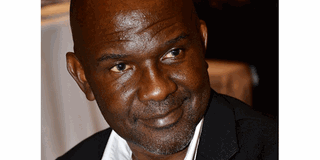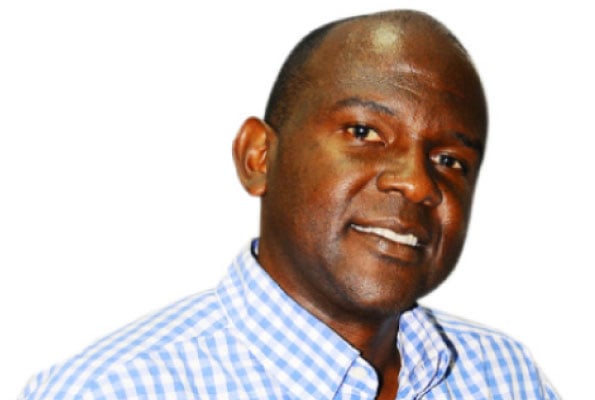Prime
All Uganda’s regimes survive by fighting economic wars

Author: Nicholas Sengoba. PHOTO/NMG
What you need to know:
- What Idi Amin did 50 years ago may have been crude, but it is not exactly alien to Uganda’s politics.
Fifty years ago Ugandan President Idi Amin Dada gave the Asian community 90 days from August 1972 to leave the country. Amin accused them of a plethora of shortcomings, the most salient of which was the economic exploitation of the indigenous Ugandans.
The British colonialist for 60 years had smartly structured the economy in a way that the Asian migrants took charge of the economy. They were everywhere from retail to wholesale trade. They had a foothold in financial services, manufacturing, construction, transport, farming and produce buying, selling and processing.
The indigenous Ugandan was in essence a ‘worker’ for the Asian; existing at his mercy. For instance he sold his coffee and cotton to him at a price the Asian dictated. Then bought from the latter items like soap and salt, again at a price the Asian decided.
Amin purportedly wanted the Ugandan to take over the economy and be in charge. 50,000 Asians mainly Indians, some of whom were Ugandan citizens were forced out, hastily. They left behind what they could not dispose of, to Idi Amin’s government.
Amin then proceeded to nationalize some of them while others were allocated to black Ugandans. A good number of the recipients of course were his cronies and regime supporters being rewarded for patronage.
Many of Amin’s critics and detractors have condemned him for distorting the Ugandan economy and putting it in the hands of ‘incompetent’ locals who run it to the ground. His supporters say he is a heroic liberator who opened the economy to the locals and put a cap on the exploitation by the Asians.
Whatever the veracity of the economic war of 1972, Amin was following a simple model which has been very useful in controlling political power from time immemorial.
The British who washed a lot of dirt on Amin, hitherto their ally, had taught this lesson by economically empowering (favoring) the Asians who were a minority. They left the locals to fight for their economic lives. This in itself was an economic war against the locals.
When Uganda attained independence in 1962, the economy was in the hands of foreign companies and the Asians. By 1968 President Milton Obote was talking about ‘a move to the left’ or what many called socialism. Companies would be nationalized. The Common Man’s Charter in 1969 espoused this new ideological shift. It was ostensibly to place Uganda at the heart of its economy as an independent state. Uganda is run by Ugandans.
This in a way was also an economic war. It moved Obote’s UPC government in the driving seat of the economy. Like Amin would later do, Obote would ensure that ‘competent’ people run these entities. In political connection, competence is amorphous with many meanings. Among them is being a supporter of the regime. One would easily get rewarded by being a distributor or wholesaler of the nationalised company.
When Obote returned for his second helping in 1980, he had all sorts of measures in place to revive the economy. The economy had been battered by war and of course the sanctions and mismanagement that came with Amin’s maverick attempt at indigenization.
Obote came with his own ideas regarding foreign exchange allocation and other preferential treatments to boost the economy. For instance licenses and permits to import essential commodities. Cooperatives were revived and capacity built to boost agricultural production.
The old order of Idi Amin gave way. New captains of industry, many of whom had links to the UPC government, gained from these measures. There was a sense of deja vu. Just as Amin had swept aside the Asian and boosted his ‘own people’ in the economic war, a new crop of businessmen and economic giants came up in all sectors from transport to import and export trade plus manufacturing.
FIND ARTICLE: EACOP; when the kettle calls the pot black
Come 1986 after the Luweero war, the government of Yoweri Museveni also came in similar fashion. It aimed to put right a battered economy for the good of the indigenous Ugandan.
There was a dream to build an independent, integrated and self sustaining national economy. The major highlight has been privatization and deregulation to get rid of ‘corruption and inefficiency’. It strangely saw the breakup of a vibrant cooperative movement that had been built overtime and populated by supporters of the UPC government of Obote.
This has been replaced in many cases by regime supporters or people linked to NRM who include contractors, middlemen, agents and lobbyists. These ones know someone who knows someone who can get things moving. Then you have foreign investors; a group that is ensconced and highly prized by the government over the locals. This one is almost similar to the one Amin kicked out in 1972. The NRM move has seen many locals complaining of being ‘sidelined’ or at worst being deliberately frustrated like it was prior to Amin’s economic war.
The drift here is that every regime in Uganda reorganizes and takes seriously the fact that he who controls the economy and the people with money, controls the politics with a degree of comfort.
To be effective politically, the government of the day must have the economy in the hands of a relatively small group of people whom it has control over. To achieve this it does not build or empower those who have been in the field hitherto. It works to destroy them and their networks while propping up a new class. The new kids on the block grow artificially with government favors and not entirely organically on their own.
It also fights to see that the new economic class is one that is compliant and ‘patriotic.’ It has to be cognizant of the regime’s hand and effort towards its existence and growth.
The obsession with foreign investors over locals in, say adding value to Uganda’s coffee, is a case in point. The vast number of coffee farmers may easily be controlled or put in their place through such an arrangement - a single big buyer. The ‘regulation’ of markets, hawking, Boda Boda and taxi business, fishing, the poultry industry and all manner of businesses is alive to this fact. It helps a government build its patronage by ensuring that the economy is in the right hands. Likewise that ‘wrong hands’ or that those not trusted don’t have the financial muscle to challenge the ruling government.
What Idi Amin did 50 years ago may have been crude, but it is not exactly alien to Uganda’s politics. It is the basic lifeline of the regime in power. The smarter governments have done it without raising suspicion.
Nicholas Sengoba | Twitter: @nsengoba




